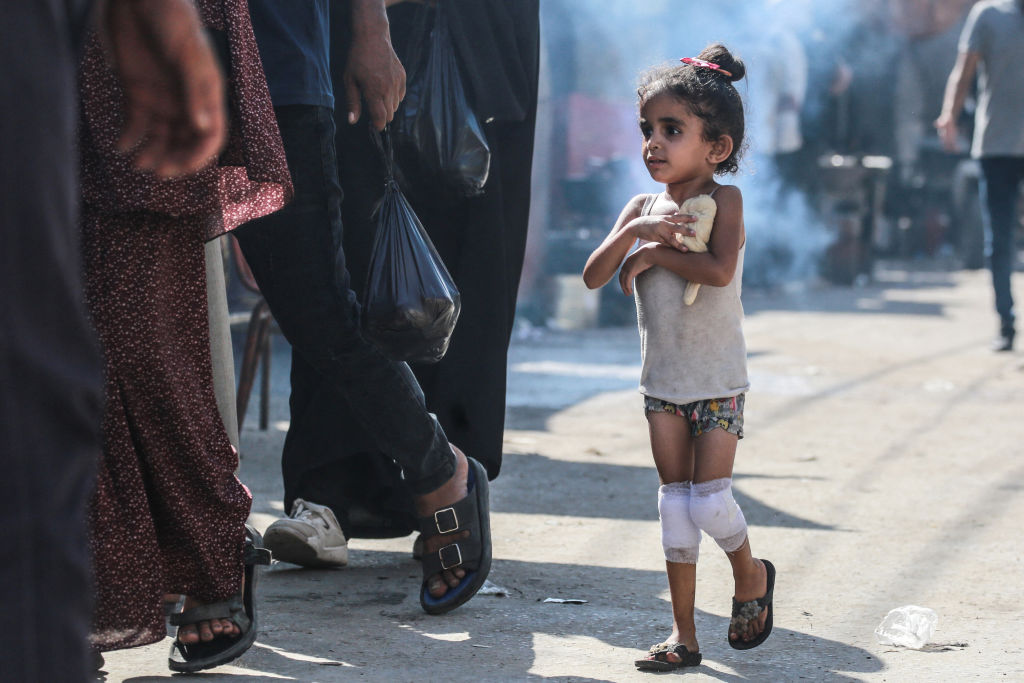Rising Tensions Amid Gaza Conflict and Lebanon Border Clashes
The Israeli army launched airstrikes in southern Lebanon in response to rockets fired into northern Israel. According to the Israel Defense Forces (IDF), two projectiles were detected coming from Lebanon’s Kafr Kila, crossing into the Mount Meron area. Following this, another barrage of ten rockets targeted northern Israel, leading to further airstrikes by Israeli fighter jets at a Hezbollah launcher.
These incidents add to the ongoing cross-border tension while ceasefire negotiations have stalled. Witnesses reported Israeli strikes across different areas of the Gaza Strip, while Lebanon's National News Agency confirmed strikes near Tyre that resulted in civilian casualties. The situation remains volatile, particularly around the Lebanese border, where the Hezbollah military structure has been a focal point.
International Calls for Peace and Ceasefires
US President Joe Biden, during his meeting with Pope Francis at the G7 summit in Italy, emphasized the urgent need for a ceasefire in Gaza and the return of hostages. Both leaders expressed concerns over the critical humanitarian crisis in the region. Biden also thanked Pope Francis for the Vatican's efforts in addressing the humanitarian impacts of the Ukraine war, emphasizing the broader global context of these conflicts.
French President Emmanuel Macron announced a trilateral initiative involving France, the US, and Israel, aiming to de-escalate tensions on the Israeli-Lebanese border. The plan involves withdrawing Hezbollah’s elite units from the border area and ending violence from both sides. Despite these efforts, Hezbollah has refused to engage in talks without a lasting ceasefire in Gaza.
Humanitarian Crisis and Detainee Conditions
The conflict has aggravated the humanitarian situation in Gaza, with significant casualties and extensive damage. Palestinian groups, including the Palestinian Legislative Council, have called for international inspections of Israeli detention centers following reports of detainees being released with chronic health problems. Among those released was Aziz Dweik, former Council President, who reported harsh conditions, including starvation and lack of medical care during detention.
Gazans like Oum Chadi, alongside Jerusalem-based demonstrators, have urged an end to the war and a focus on humanitarian relief. The ongoing humanitarian crisis in Gaza involves severe shortages of food and medical supplies, amplifying the suffering of civilians caught in the crossfire. The war, triggered by the October 7 Hamas attack on southern Israel, has led to a high number of fatalities on both sides, with civilians bearing the brunt of the violence.
The US continues to push for a ceasefire based on a plan introduced by Biden, which includes a six-week ceasefire and mutual prisoner releases. However, Israeli Prime Minister Benjamin Netanyahu has expressed a firm stance on continuing military operations until Hamas is defeated and all hostages are freed, whereas Hamas has presented amendments to the ceasefire plan, seeking a full withdrawal of Israeli troops from Gaza.
- IDF's strikes in southern Lebanon and Gaza are part of ongoing military responses to cross-border attacks. There has been escalating violence since Hamas's unprecedented attack on Israel on October 7, resulting in significant casualties and heightened tensions.
- Negotiations for peace and ceasefires involve complex dynamics, with various international actors trying to mediate between Israel and Hamas as well as other involved parties like Hezbollah.
- The humanitarian crisis in Gaza continues to worsen with each passing day, and calls for international support and pressure on all parties to achieve a ceasefire are growing louder. Human rights organizations highlight the dire conditions of detainees in Israeli prisons, demanding urgent inspections and improvements.






